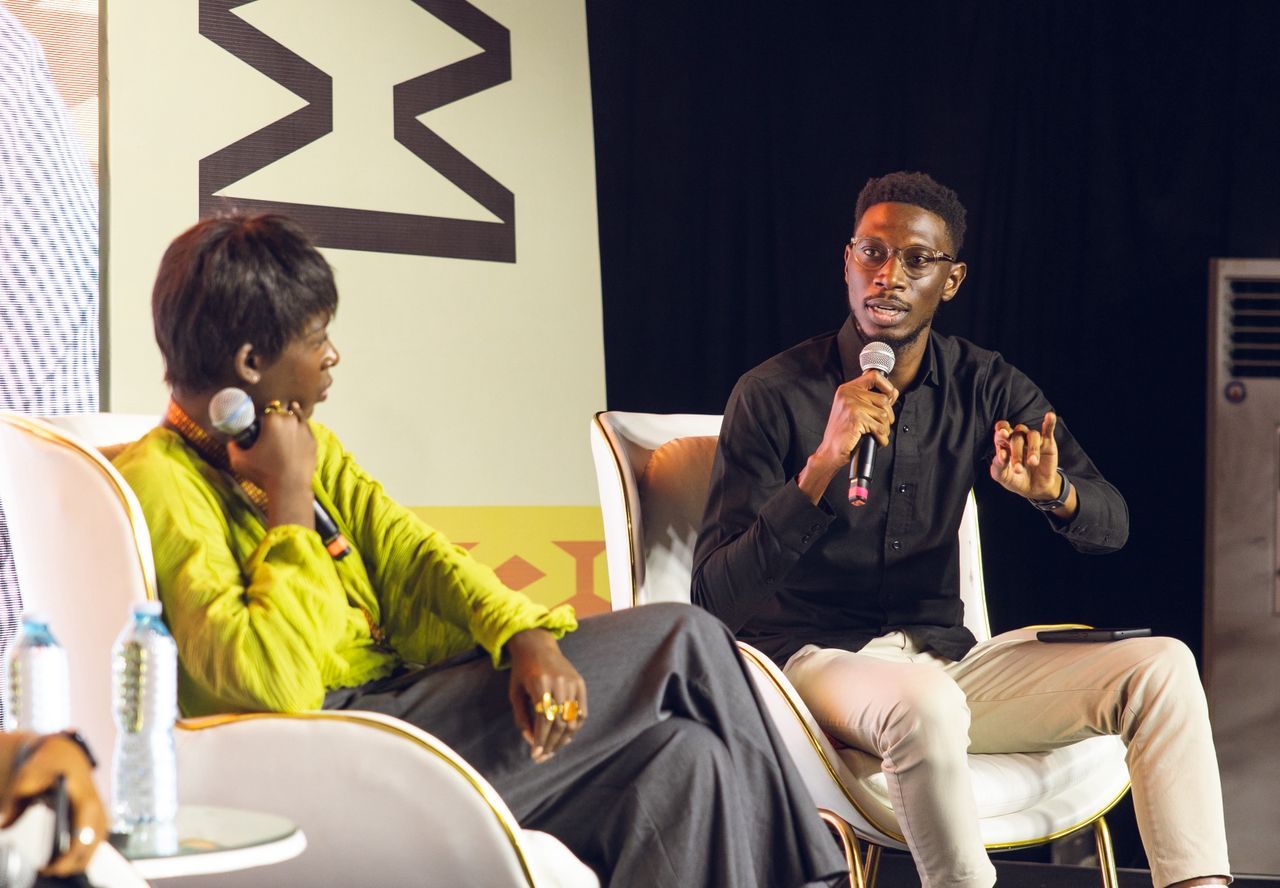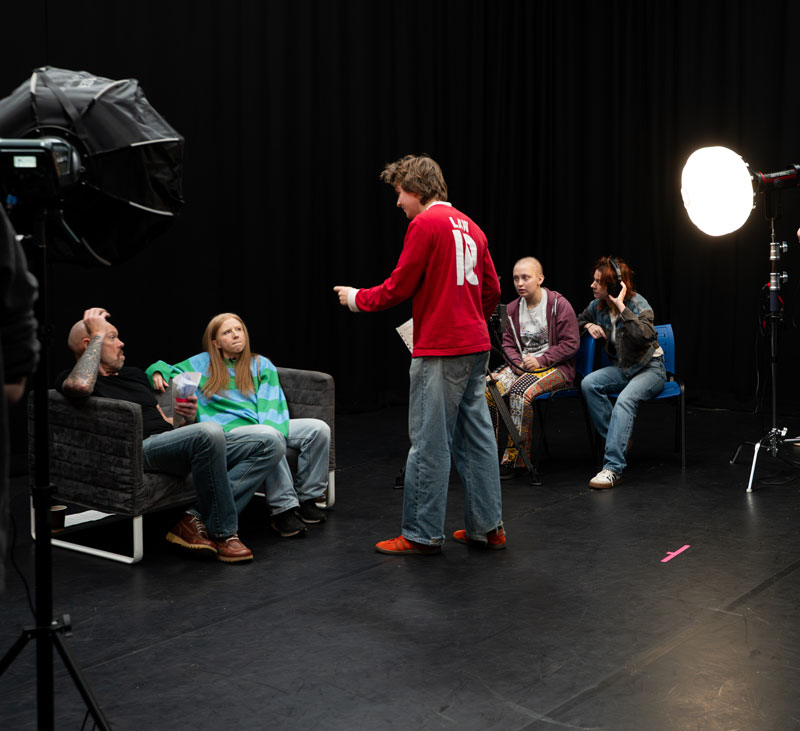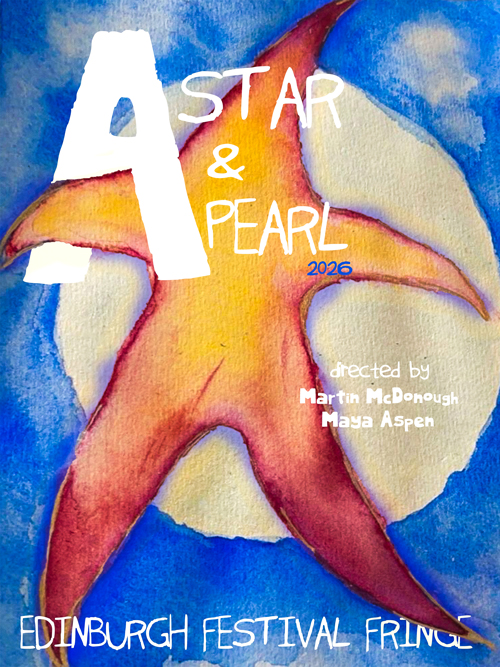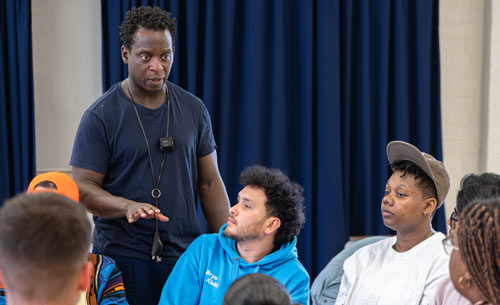Acting students at the Liverpool Institute for Performing Arts (LIPA) took part in a Q&A with one of the industry’s most versatile actors, Kobna Holdbrook-Smith MBE.
In a career spanning over 20 years Kobna has worked successfully in film, TV, theatre, musicals, radio and audio books. His credits include films Wonka, Mary Poppins Returns and Ghost Stories, TV shows The Split, His Dark Materials and Motherland and stage shows The Effect, Hamlet and TINA: The Tina Turner Musical for which he won the Olivier Award for Best Actor in a Musical.
His chat with students was wide ranging and insightful. Here are six of the key takeaways:
The biggest challenge in your career is not the work. It’s what you do when you’re not working.
“That’s when you have to find fortitude, find a way to stay alert. If there’s been a long time since you’ve worked it can erode your confidence. I had to find a way to stabilise when things weren’t going my way.
“What I’ve learned to accept is that there are always going to be periods when I feel a bit uncertain, a bit low, that I should have been a lawyer. But then something will happen, an opportunity to tell a story I want to tell, and it becomes a way of re-settling into why I do this.”
Collaboration is healthy – professionally and emotionally.
“Everything we do is collaborative. Everyone relies on someone else, so open yourself up to that. It will make you more generous, more curious and expose you to more human influences that you will then be able to express. And, just as importantly, it means you won’t be lonely and being lonely can be so depleting.
“You don’t have to fall in love with everyone you encounter, but you do need to engage with them and that will keep you healthier than if you’re only thinking about me, me, me.”
Being a black actor is a different experience from being a white actor. There are more obstacles and challenges.
“There have been so many different drives, schemes, efforts, endeavours and initiatives to make things more equitable. I think those things are effective and are working but I do think things are harder, that’s just a fact. I don’t accept it; I just understand it.
“If you’re a young black actor, things are better than they were, you should keep going. Not only will you work, but you will also have opportunities to do interesting and exciting things. Whereas when I graduated it was like we had ‘one in and one out’, where there would only ever be one black actor who was in the ascendency whereas there might be 14 white actors. I know things are changing but it can be very, very depressing if you zero in on the reality of things.”

What it’s like to win an Olivier Award.
“They read out my name at the ceremony, and it just didn’t feel real. The next 20 minutes I don’t remember. It’s only because I went back and watched videos that I was able to resurrect the memory.
“I have this photo taken after getting the award and I look like a 14-year-old because I look so confused that I’m holding an Olivier and its mine. It was incredible to have that affirmation and recognition from my peers and the industry, especially for my first musical and first time in the West End. It felt impossible.”
You don’t get paid for the stuff you want to do; you get paid for doing the stuff you don’t want to do.
“When I get a script, I will do four different readings of it as part of an objective analysis, which I think is vital. I will go through and write down everything the writer says about my character, then everything every other character says about my character, then everything my character says about themselves and finally everything my character does. Doing that exercise isn’t glamourous and it’s not hard - but it is tedious, that’s what makes it hard work.”
Learn your lines before you start rehearsals – it's a game changer.
“People will say ‘I don’t want to learn the lines yet because I don’t want them to be stale, I want to play with them.’ The only way you can really play with the lines is if you know them.
“A director may say to you, ‘I know it sounds crazy, but can you try saying it like you hate her rather than love her?’ If you only know your lines a bit, you’ll be reaching for them and what fuels your memory is the feeling you need to express. Unless you really know your lines, you won’t have enough versatility to try the new way of doing it. If you were to ask me for one bit of advice it would be, learn your lines!”
As well as the Q&A, Kobna also ran a workshop with a selected group students which explored how simple interventions to scenes can quickly produce results.

Images: Kobna Holdbrook-Smith during a workshop with Acting students, and above Kobna with 12 of the students who took part in his Q&A. Photography Brian Roberts.
Related Articles
-

LIPA welcomes first Chevening Scholar to our MA in Music Industry Management
Monday 23 February 2026
-

Filmmakers develop directing skills with industry professionals
Friday 20 February 2026
-

Reaching for the Star, Holding the Pearl: Students develop original Dance show for Edinburgh Festival Fringe
Thursday 19 February 2026

